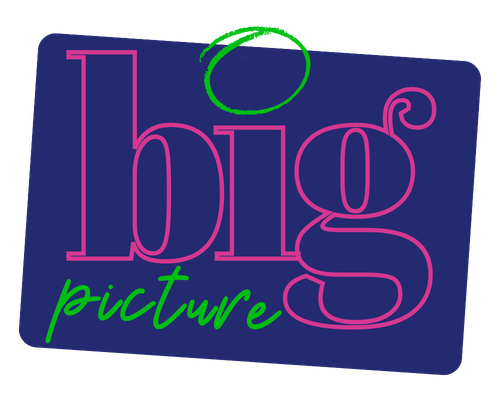The ADHD Diagnosis Dilemma
Like many adults who suspect they may have ADHD, I embarked on a journey to seek an official diagnosis in 2022. I dutifully went to my doctor, filled out the arduous forms that took me months to even look at, and then joined the endless NHS waiting list. As of now, I'm still waiting to be assessed, with no clear end in sight.
Yet surprisingly, I've reached a point where I'm no longer as bothered about obtaining that formal diagnosis and "rubber stamp" validation. My perspective on ADHD has shifted vastly since those early days of trying to fit myself into the narrow symptom checklists. The future looks a lot brighter!
Reframing Deficits as Differences
Fast forward to now and I’ve spent every avilable minute of the past few years immersing myself in ADHD - yes, almost obsessively! The more I’ve learned about ADHD from actual lived experiences rather than clinical descriptions, the more I’ve realised how limited and misleading those typical lists of deficits and dysfunctions are. Words like "carelessness", "inability to focus", and "poor organisation skills" do so little to capture the vibrant realities of the ADHD mind. We ADHDers exist in a multiverse of possibilities! We’re the creators, the big picture thinkers, the innvators… no wonder we find it hard to care about doing the laundry.
Instead of seeing myself constantly starting but not finishing tasks, I've embraced systems like intentional task-switching, where I rotate between 2-3 projects simultaneously to keep my brain happy. My version of organisation makes perfect sense to me, even if it’s a thing of creative chaos to others! Labelling ADHDers as simply "forgetful" ignores our incredible capacity to develop innovative hacks and memory aids tailored to how our brains actually operate.
A Kaleidoscope of Neurodivergent Experiences
Beyond reframing the conventional "dysfunction" descriptions, I've also encountered a vast richness of experiences that get left out of those limited medical checklists. I’ve met a kaleidoscope of people with the most eye-watering array of talents, strengths and ways of being. For example, like many ADHDers, I communicate differently when I unmask. I have a complete aversion to small talk, a tendency to relate by sharing my own experiences and I don’t see interrupting as rude. When I am in conversation with a fellow neurodivergent person, there’s nothing I love more than getting into a ‘flow state’ with each other and completely letting go of conversational conventions.
Then there are sensory patterns like skin picking, fidgeting and self-soothing, plus emotional dynamics such as intense empathy and sensitivity, that co-exist with mood swings and difficulties with emotional regulation. My world is shaped by a constant undercurrent of wordplay, random thoughts and ear-catching phrases on repeating loops in my mind.
The further I walk this path of understanding my neurodivergent wiring, the more I've realise that many of the traits once viewed as "deficits" are more properly seen as exotic spices in the rich stew of human diversity. ADHD brings with it the ability to think divergently, hyperfocus with intensity, thrive in high-stress situations after recharging, and make intuitive leaps based on parsing patterns invisible to others.
So while an official diagnosis can provide you with pragmatic benefits like access to medication or formal workplace accommodations, for me it no longer feels essential. I accept the way I am now - and I understand it. The soul-shifting revelation has been recognising myself as naturally wired to experience the world with heightened sensitivity and depth - a difference, rather than a disorder.
This doesn't make me damaged or lacking - simply tuned to register and engage on a different frequency than the societal "norm". And for anyone else who suspects they may be traveling a similar experiential path, I hope sharing a few vignettes from my journey prompts further curiosity about reframing stereotypes and reclaiming the unique strengths that come with embracing one's neurodivergent operating system. We’re not broken, just different! Learn more in this podcast episode

